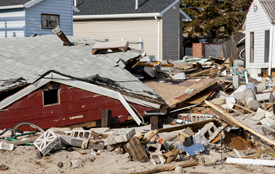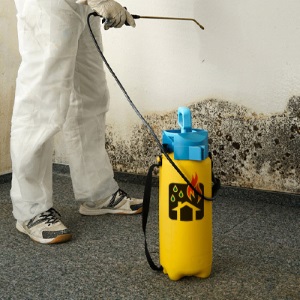Standing Water? Standing IN Water? Call now.
If your building is flooded, stop reading and call us!
If you’ve had previous damage from water and it’s less of an emergency, you can call us or contact us by email.
Standing Water? Standing IN Water? Call now.
If your building is flooded, stop reading and call us!
If you’ve had previous damage from water and it’s less of an emergency, you can call us or contact us by email.



SAFETY IS PARAMOUNT WHEN YOU EXPERIENCE A FLOODED BASEMENT
WHAT TO DO (AND NOT DO ) TO ENSURE YOUR SAFETY AND MINIMIZE DAMAGE AND COST .
Flooding in your basement or home can be a devastating experience. It may be due to heavy rainfalls, rapid snowmelts in the spring, leaking roof, broken pipes, sewer backups, and many other sources. When preparing to deal with the aftermath of a flood in your home safety needs to be your number one concern.

Be Aware of Flood Dangers
Even light flooding inside a home can be dangerous. When water levels reach electrical components, outlets, or the electric box, you risk being shocked or electrocuted if you enter the flooded areas. Turn off the main power supply as soon as possible, only if it’s safe to do so. Switching off the electricity with wet hands or while standing in water is extremely dangerous. According to the National Floor Safety Institute (NFSI), some 600 people annually die from slips and falls on hard surface flooring, especially when wet. So be careful when maneuvering around a flooded area.
There are standard procedures you may take as soon as water damage is discovered. In fact, they should be initiated before a restoration contractor arrives. These procedures can minimize damage and reduce restoration complication and cost considerably.
What To Do:
1. Ensure that a plumber or contractor has been called to eliminate the water source and make necessary repairs as required.
2. Ensure that HVAC equipment, if operating, is set at moderate temperatures (65-75°F/18-24°C). Do not turn on the heating and air conditioning system if it was flooded, or it might serve to spread contamination.
3. Switch the HVAC blower into the “continuous on” position.
4. Turn on ceiling fans or any other air handling equipment available within the home.
5. Activate all exhaust fans (kitchens, bathrooms, etc.), particularly if moisture is already condensing on interior windows or metal surfaces.
6. Open all draperies, venetian blinds or mini-blinds to allow the sun to shine in.
7. Weather permitting (temperature of 65-85°F/18-29°C and humidity below 50%), open windows and doors as possible for ventilation of moisture.
8. If safe to do so, turn off circuit breakers providing electricity to affected areas; unplug and remove any small electrical devices currently located in wet rooms.
9. Remove small furnishings from carpet, to prevent rust or stains and speed restoration.
10. Place aluminum foil under legs of wood furniture, especially antiques, to prevent stains.
11. Hang draperies and pin up furniture skirts to avoid contact with wet floors which prevents water marks.
12. Remove books, shoes, paper goods, fabrics, potted plants, or other items that may stain floor coverings (check especially under beds and in closets for these items).
13. Remove and secure breakables, moisture-sensitive, or high-value items.
14. Wash your hands thoroughly after handling wet items.
What NOT To Do:
1. Do not use any type of home vacuum, even shop vacs, since electrical shock may occur, as well as potential damage to the equipment.
2. Do not place newspaper in the traffic areas, since the ink transfers easily.
3. Do not walk on wet carpet any more than necessary to minimize damage.
In a sewage loss, specifically do not:
- Handle directly contaminated items.
- Consume foods or use personal hygiene items that were left out in contaminated areas.
- Turn on fans to circulate air or use any vacuum equipment.
- Stay in the property if you: (1) Have respiratory problems including allergies and asthma; (2) are under age 2 or over age 60, or pregnant; (3) have a weak immune system (ill, medication, recent surgery).
THINGS TO NOTE:
The longer you wait to have water removed after a flood, the more damage you will experience. Calling for professional help will minimize damage, reduce costs, relieve stress, and get you back to normal. It will also make getting your insurance claims back easier and faster. A water damage restoration company will handle everything from completely removing all water to restoration and waste removal. We’ll also provide mold inspection and removal services.
Choose ERS when your basement floods, we are:
- IICRC Certified
- Fully licensed, bonded, and insured
- Available 24/7/365
- Always arrive on the scene within 60 minutes of your call
- Have a 100% satisfaction guarantee
Contact ERS for water and mold removal services today.




